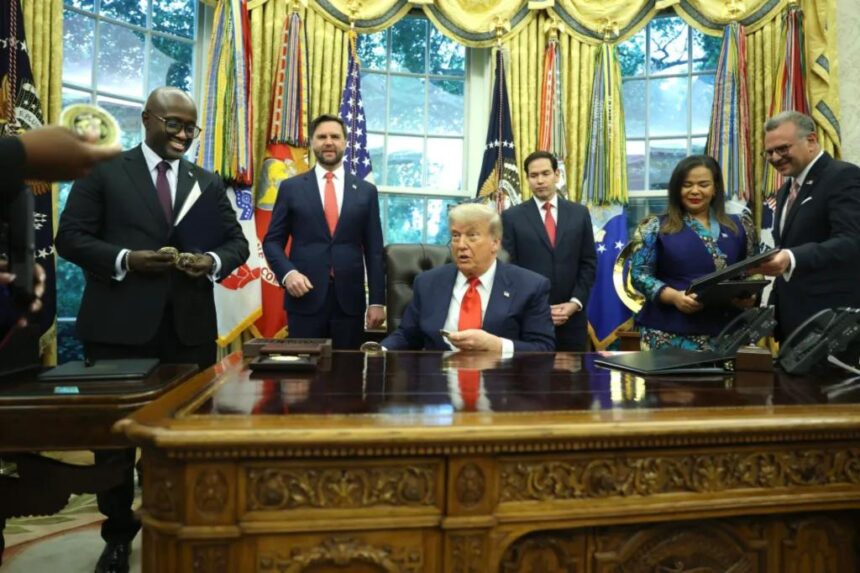Rwanda and the Democratic Republic of Congo have come to a historic agreement, brokered by the United States, in a bid to bring an end to the ongoing conflict that has resulted in the loss of many lives and the displacement of hundreds of thousands of people this year.
The signing of the agreement signifies a breakthrough in the talks facilitated by the Trump administration and aims to attract significant Western investment to the region, which is abundant in valuable minerals such as tantalum, gold, cobalt, copper, and lithium.
During a ceremony in Washington with U.S. Secretary of State Marco Rubio, the foreign ministers of both countries signed the agreement, committing to the implementation of a 2024 deal that will see Rwandan troops withdraw from eastern Congo within 90 days. Additionally, Kinshasa and Kigali will embark on a regional economic integration framework within the same timeframe.
President Trump expressed his satisfaction with the agreement, highlighting the devastating impact of the conflict on the region and commending the efforts to bring about peace. He emphasized the importance of this agreement, stating that the United States would benefit from mineral rights in Congo as part of the deal.
Rwandan Foreign Minister Olivier Nduhungirehe described the agreement as a turning point, while Congo Foreign Minister Therese Kayikwamba Wagner stressed the need for immediate disengagement following the signing.
President Trump later met with the officials in the Oval Office and extended invitations to Congolese President Felix Tshisekedi and Rwandan President Paul Kagame to visit Washington for the signing of a package of agreements known as the “Washington Accord.”
The agreement also includes provisions for the formation of a joint security coordination mechanism between Congo and Rwanda within 30 days, as well as the implementation of a plan to monitor the withdrawal of Rwandan soldiers within three months. Congolese military operations against the Democratic Forces for the Liberation of Rwanda (FDLR) are also expected to conclude within the same timeframe.
While challenges and flaws remain, experts believe that this agreement presents the best opportunity for a peace process in the region. The economic aspect of the agreement aims to de-risk mineral supply chains and establish value chains linking both countries, with the involvement of U.S. investors.
Overall, the agreement holds strategic significance in not only securing peace but also in attracting investments to the region. However, the successful implementation of the terms will require continued support and monitoring from the United States to ensure compliance from both parties involved.








